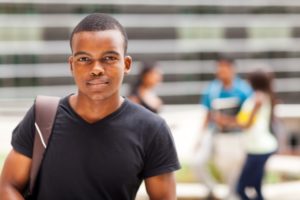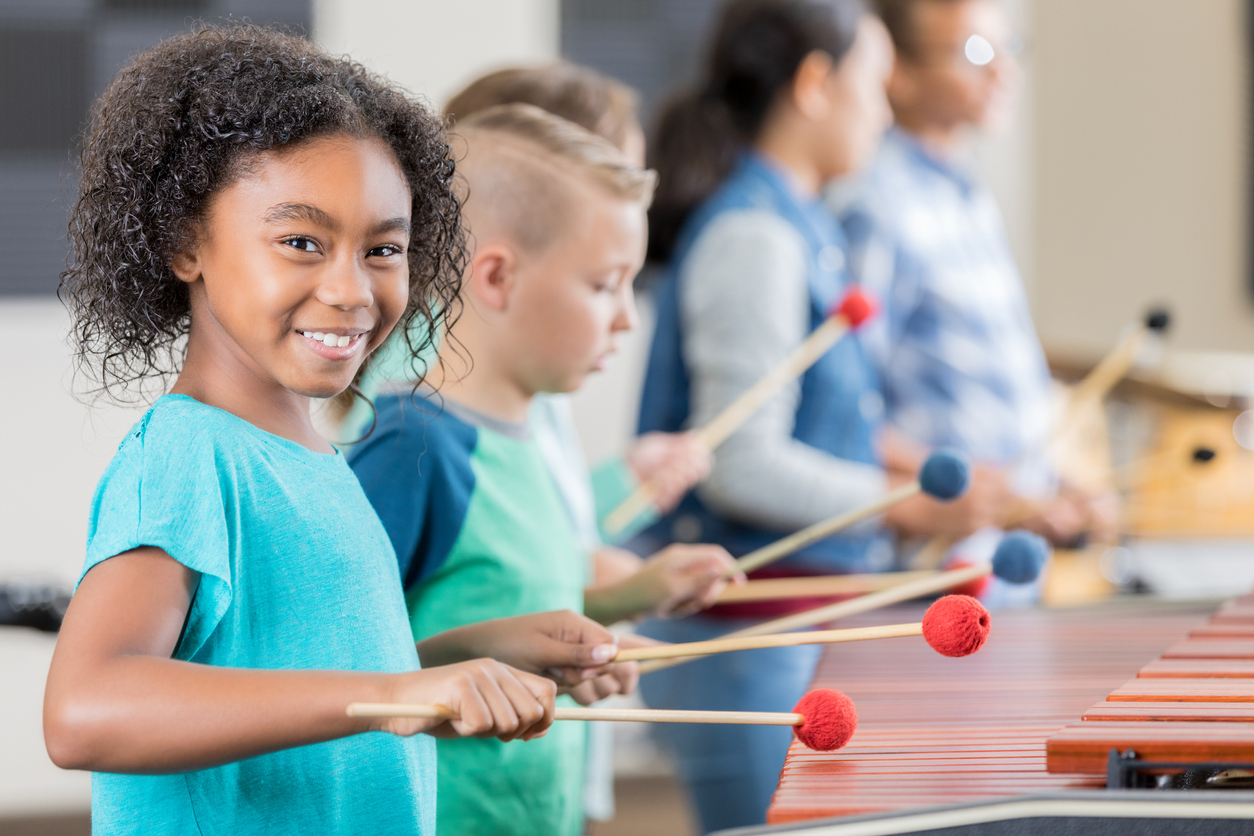Music instructor and 2017 Wisconsin State Teacher of the Year, Chris Gleason, shares thoughts on designing teaching to encourage wonder and curiosity.


In your experience in education, (or in life), have you ever had two years that were the same? How about two classes? How about two children? In my twenty-five years of teaching, one truth rings out: every class and every child is beautifully unique. Why do schools continue to narrow the curriculum emphasizing only a few subjects if this is true?
Many years ago, I was offered a ticket to hear a guest lecturer on the UW-Madison Campus. The speaker was the late Sir Ken Robinson. This event marked my first introduction to Sir Ken, and I found myself furiously taking notes as he spoke. In his talk that night, he said, “Intelligence is Diverse, Dynamic and Distinct: We know that each individual demonstrates their intelligence in uniquely different ways. A system that focuses on merely one path, one way of doing, undervalues those that don’t fit the mold.”
Our country seems obsessed with increasing math and literacy scores. I have observed school systems doubling down on instructional minutes in these two areas while reducing time in the arts and other electives. Overworked teachers are being asked to analyze test data, create Student Learning Objectives, and craft SMART Goals, all in an effort to improve scores. Terms such as “tougher standards,” “higher expectations,” “raising the bar,” and “accountability” have been thrown around by politicians, school boards, and administrators. All the while, students in higher numbers come to school seeking meaning, connection, and joy.
Our myopic focus on student test scores in a narrow range of subjects has created an environment that devalues and alienates many students. We need to broaden our curriculum and eliminate standardized testing while developing multifaceted ways for students to demonstrate growth and achievement.
In his book, Out of our Minds, Ken Robinson writes, “All over the world, governments are pouring vast resources into education reform. In the process, policymakers typically narrow the curriculum to emphasize a small group of subjects, tie schools up in a culture of standardized testing and limit the discretion of educators to make professional judgments about how and what to teach. These reforms are typically stifling the very skills and qualities that are essential to meet the challenges we face: creativity, cultural understanding, communication, collaboration, and problem-solving. Many people are diverted from their natural paths in life by the preoccupation in education with academic intelligence and the hierarchy of disciplines. It shows itself especially in the distinction between academic and vocational programs and the idea that doing practical work or studying for a trade is lower grade than taking an academic degree.” (Robinson, 339)
I see politicians and administrators working harder than ever to get our school “machine” to run better and more efficiently. The problem, though, is that the “system” is outdated and will no longer meet the needs of our rapidly changing world. We need to embrace the concept that intelligence is broader than our current views. We need to realize that standardized tests do not give us definitive numbers to base significant decisions solely. We need to recognize that “the task of education is not to teach subjects: it is to teach students. We need to see educators as professionals and give them the tools they need to make the best decisions for their students. We need to support educators with highly developed professional development, which encourages collaboration and not competition. We need to make decisions based on data from multiple sources and look to research to find best practices. We need to take a vested interest in each of our students and realize that “at the heart of education is the relationship between teachers and students. If students are not learning, education is not happening” (Robinson, 647). “We’ve bought into the idea that education is about training and “success,” defined monetarily, rather than learning to think critically and to challenge. We should not forget that the true purpose of education is to make minds, not careers” (Hedges, 16).
In 2017 I had the privilege of speaking to Sir Ken Robinson on the phone. During our conversation, he said, “It’s not an argument against math or science — on the contrary, they’re desperately important. But they’re not enough. A great country like this depends not only on mathematicians and scientists and engineers but on people who can work in business, on artists, on musicians, and on people who work in the community. We depend on a huge range of talents and abilities.”
I believe that we can create vibrant and thoughtful learning spaces where students as young as Kindergarten grapple with our deepest and most enduring questions. We can design our teaching for wonder rather than performance, for curiosity rather than testing, and for innovation rather than compliance. All of it starts with regaining balance in our curriculum while welcoming and valuing the diverse interests and abilities already inside our students.
—
Chris Gleason is an instrumental music educator at Patrick Marsh Middle School in Sun Prairie, Wisconsin. He is the 2017 Wisconsin Teacher of the Year and the first Wisconsin teacher to be named a finalist for National Teacher of the Year in 50 years. He was recently selected as one of the five 2021 Horace Mann award recipients by the NEA Foundation, as well as a Top 50 Finalist for the 2021 Global Teacher Prize sponsored by the Varkey Foundation and UNESCO. He is also a current semi-finalist for the 2022 GRAMMY Music Educator of the Year Award.
In 2009 Chris started the ComMission Possible Project that annually commissions a new work for band. Chris recently served as a Teacher Leadership and Engagement Specialist with the Wisconsin Department of Public Instruction inspiring future education majors across the state. He is the past-chair of the Wisconsin Comprehensive Musicianship through Performance (CMP) Committee, the Wisconsin State Middle-Level Honors Band and the Wisconsin State Middle-Level Honors Project. In 2019 Gleason was selected as an NEA Foundation Global Learning Fellow and traveled to South Africa. Mr. Gleason is the founder and organizer of the Beyond The Notes Music Festival Inc. in Wisconsin Dells that has to date inspired more than 35,000 young musicians and 70 future music educators. Mr. Gleason recently presented his own talk at 2019 TEDxOshkosh entitled, “Lighting a Fire in Kids”
References:
Hedges, Chris. Empire of Illusion: The End of Literacy and the Triumph of Spectacle. New York: Nation Books, 2009. Print.
Robinson, Sir Ken. “Developing Imagination in Education” Full Sail University, March 25, 2008. Lecture.
Robinson, Sir Ken. Out of our Minds: Learning to be Creative. United Kingdom: Capstone Publishing, 2011. iBook, Web. 17 Nov. 2013.